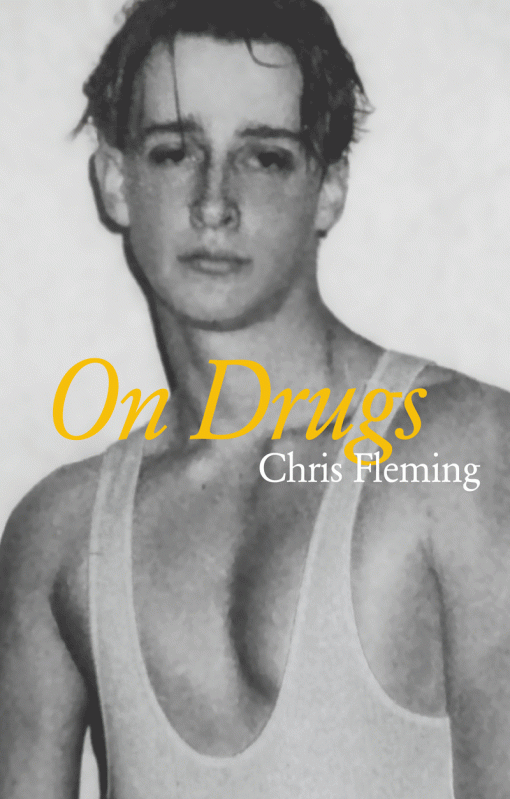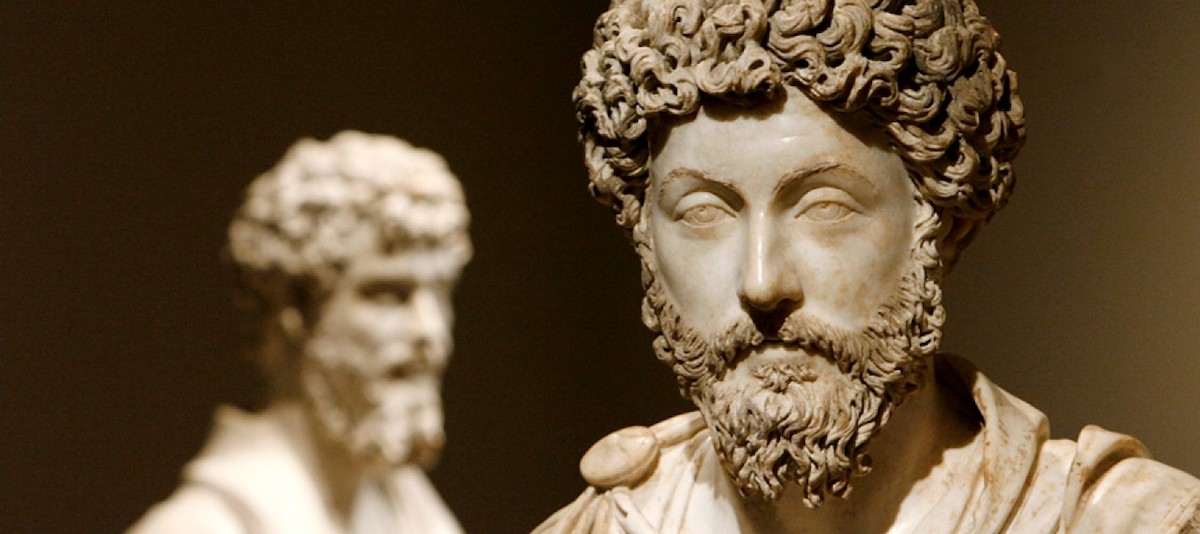As with everything, I thought I could destroy addiction with books. For a couple of years, my reading of philosophy and literature took a back seat to self-help. I would embark on a new self-help book, only to be quickly put off by some claim I thought was wrong or unsubstantiated, or caused me to judge the author as somehow stupid or naïve or uninformed—or at least uninformed about me, given what I then took to be my incurable uniqueness. (Often the thought would be, “Well, if I could believe utter crap, this might actually work.”) I persisted with the self-help literature because I thought that eventually I’d come across a book which could effect the beloved “paradigm shift” I thought I needed.
But gradually, as the books piled up around me, I was struck by a certain self-understanding that seemed to follow ineluctably from their mere presence: I am terminally dysfunctional and there is absolutely no hope. I was, evidently, temperamentally unlike Thomas Edison, who we’re told took every failed attempt (more than 1,500 of them) to find a filament for the light globe as a “success”—because every dead end represented knowledge of another thing that didn’t work.
Many of the self-help books, eventually almost all of them, remained unread, in part because it was very easy for me to be put off a book by the most trivial conceptual or linguistic quirk: I was extraordinarily unforgiving when it came to what I saw as intellectual or rhetorical ineptitude, especially when combined with condescension; an embarrassing degree of self-flattery on my part imposed very high standards on the authors I was reading. Having said that, I don’t think it was merely a matter of judging myself superior to those authors—after all, I didn’t have the answer either. It was just that I found it hard to entrust someone with my life if I couldn’t trust them with an apostrophe.
Apart from the large discard pile, there were bundles of unopened volumes. With my increasing disappointment at their content, there was a positive function to leaving them unread: it served, albeit pallidly, to help me hope that things could be different. Unopened, unread, these books might yet have the solution to all of my problems. I was scared that I would read and find all of them to be useless, which would have left me with nothing except myself, and it was precisely from myself that I hoped the books (and the drugs that prompted their appearance) would save me in the first place.
The most terrifying kind of self-help book was the one—more common than one might think—where the author sets up a scenario in the introduction roughly as follows: “For years I was unhappy and I traveled everywhere and followed gurus and applied myself to myriad different systems of personal development, all to no avail. I felt like it was hopeless. Then I discovered x, detailed in the following pages, which represents the end of your seeking, too.”
Authors like this didn’t seem to realize that making such claims meant that if the desperate reader got through their book without the seismic shift presaged in the introduction, it was equivalent to saying, “Oh well, in that case, your situation really is utterly hopeless.” I remember beginning to read a book with this kind of introductory framing, and my reaction was both to put the book down, never to open it again, and to order another title by the same author.
I saw in books a kind of refuge that was not a drug or a drink: they offered vast pages of potential that retained that status—potential—as long as they weren’t opened. But it was hard to keep operating the opposite sides of my brain, which allowed for the beliefs that (a) the books—or a book—might have the answer, and (b) I wouldn’t open them precisely because they didn’t. This pointed to a persistent sense of lostness, of not feeling, at base, that I knew how to live, like other people did, that I didn’t even know what do to when I got up in the morning—and then what to do after that.
It’s a cliché that people who stop using drugs often take up surrogate addictions. I really wanted to believe in that, too; I would have been overjoyed to have a surrogate addiction, and maybe the purchase of the books was a version of this, an addiction to self-help-book purchasing, but—for the addict, and I suspect also for many non-addicts—the experience of drugs and alcohol is so singular that it is not amenable to substitution, to any surrogates worthy of the name.
I learned about this absolute un-substitutability very early on. Never feeling that I was able to get access to enough—and strong enough—acid, I remember coming across, in a New Age bookstore called Phoenix Rising, a book that advertised itself as containing “genuinely hallucinogenic images”—a promise, I thought, that I could quite literally get high just by staring at the pictures. That book was also a let-down; to me they appeared just like those old images that sometimes ran in the magazines that came with the weekend newspapers—”Magic Eye” pictures—which would have you struggle over what looked like a blotchy test pattern for hours in order eventually to see a teddy bear sitting among a quarrel of sparrows. No surrogates to be found here.
Ultimately, two realizations pushed me towards “recovery”—a word about which I have some unease, given that it implies finality, and invokes a form of language that one might hear on a talk show; I can’t shake the sense that I’m being ventriloquized. One realization was my inability to conceive of my behavior as anything other than suicide. About mid-2009 the distinction between “using” and “killing myself” began to blur, and that blurring put things into stark relief. It’s impossible for me to track how this transition in attitude took place, or even over what time period, but once it appeared, heavy and unavoidable in consciousness, its presence was unmistakeable, impossible to dodge. It wasn’t that using ended up looking similar to suicide or that it might lead to suicide; it suddenly was suicide.
And this shift forced a question upon me: even if I wasn’t a fan of living, was I really prepared to kill myself? That was clear enough: I knew that I didn’t want to kill myself. Even if, at that stage, I didn’t find much to affirm about living, and continuing to exist often seemed more trouble than it was worth, I was horrified by the prospect of the damage a suicide would inflict on those close to me. It would amount to some kind of curse on my friends and family from beyond the grave and, especially for my children, a form of life sentence.
The other shift in perspective that pushed me towards recovery was my growing realization that I had absolutely no idea about how to get and remain clean—to live without drugs or alcohol. I began to think that I didn’t know anything about not using, and maybe even nothing about what such knowledge might look or feel like. I was also convinced that nobody else knew either, at least that nobody could solve my problems. I’d tried every approach I could think of and I was still using as much—more—than I’d ever done. In that crack of self-acknowledged ignorance there was a chance something else could seep through and take hold, although I didn’t know what, if anything, that might look like, or whether it even existed.
I didn’t even understand why I used, apart from “because I feel bad.” At first, years before, I’d reasoned that I was depressed, and that was why I drank and took drugs—so I’d decided I’d need to first cure my depression to stop my using. I’d then thought that my addiction, and my depression, was caused by food or environmental allergies, so I’d need to fix these; I’d convinced myself that “addiction” itself was a social construct, one that undermined agency in the subjects of its discourse, and what I needed was simply a courageous and final decision to stop drinking and using; relatedly, I’d convinced myself (again) that “addiction” was a dubious quasi-theological idea that actually created the phenomenon it purported to describe, and that I simply had to moderate my dose, like normal people did, since thinking of myself as an addict was actually what made me take drugs excessively; I’d tried to convince myself that I’d simply become captive and pledged allegiance to a certain romantic aesthetic—the smashed poet—and I needed to switch visions, perhaps to a more vegan, macrobiotic poet; and, exhausted by a consciousness always divided upon itself, I’d even tried to convince myself at various points that how I was living was totally fine, that it was only my overactive Catholic superego that found problems with it, that in other times and places (Weimar Germany? Hôtel Pimodan in the mid-nineteenth century? Haight-Ashbury in 1967? Charles Bukowski’s spare bedroom?) what I was doing would have been considered perfectly normal.
I’d spent hundreds of hours, years, thinking about addiction, reading about it, discussing it on long walks with M, during which we’d look at it as if it were some kind of enormously complex Sudoku puzzle that could be cracked, given sufficient time and intellectual energy, and perhaps a quantum supercomputer. I still hadn’t realized that the problem didn’t actually require more intellectual sophistication—that “solving” addiction wasn’t like cracking the Enigma Code.
At some point in my life, I think in my mid-twenties, I came to believe that feeling like shit was a total emergency, a canary in the coalmine signaling catastrophe, something intolerable, a dire problem to be solved, immediately if possible. The idea isn’t inherently idiotic; if we have physical pain, then it’s usually a sign that something is going wrong, and that we should attend to it. People who ignore these signs are likely to end up in an ambulance or covered in earth.
I gradually came to see that this mentality, applied to psychological pain, got me into trouble. An alternative was presented to me at rehab: it’s not a sign that things are desperately wrong; it’s just another experience that contains information. It might be unpleasant, even deeply unpleasant, but it’s not for this reason an assassin. Addictions, at the base, are mostly just maladaptive, compulsive attempts to block desperate feelings, which end up casting bigger and nastier shadows than any of those feelings might have done by themselves. It came as a revelation to me—although probably not to most people—that those horrible feelings would go away, regardless of what I did, and that they’d re-emerge—and then go again—and then re-emerge (and then go). I should probably get used to it. I was being convinced that I was behaving as though the ordinary setting of the sun of an evening was, in fact, the disappearance of the sun altogether—like some primordial ancestor, who, witnessing the very first sunset, thinks, “Oh god! This is really bad news…”
*
When eventually I was scheduled at a hospital in Sydney’s west, one of the few consolations I could find was in Marcus Aurelius’s journal Meditations. I’m far from alone in finding solace in this work. I’d taught the text before to upper-level undergraduate students and had never really taken to it, but in hospital it suddenly grabbed me. Aurelius is sometimes referred to as “the last good emperor” of Rome, and was a Stoic philosopher of some renown, the Meditations being his only work. What I found odd on looking at it again was the enormous amount of redundancy in the text—ideas were stated, repeated, reformulated, restated, and on and on. Points such as controlling one’s own perceptions of events, the transitory nature of human existence, and the value of simplicity are repeated in every chapter. The exact same point was made—not developed—in about 20 different ways at different points in the text. Why had I never really noticed this before?
When written down, all of these “insights” sound trite—but when they landed, they stuck, and they somehow healed.Mostly the way I’ve thought about knowledge privileges novelty. Why, if I knew something, would I need it repeated, unless I was trying to memorize it for an exam? If I know Nairobi is the capital of Kenya, it’s not going to be very interesting having someone remind me of this repeatedly. If I know something, then I generally want something to build on the already-known. But here, in this famous work of philosophy—as in many such ancient works—this wasn’t the case. This seemed to match my own connection to “recoveryspeak,” which no longer seemed like it was designed to be incorporated into a grand theoretical overview of addiction, but now appeared like shards of practical reason that I might be able to hear more than once. Even when an insight was delivered to me, even when recovery was in some sense cognitive, and might involve some “true proposition,” I often had to keep hearing it; and each time I heard it, even though I already knew it, it hit me afresh. In a difficult spot, I’d call my sponsor and what he’d tell me would be something I’d heard many times before:
You can handle this pain for the next hour.
Expectations are just premeditated resentments.
Humility is never thinking less of yourself—it’s mostly thinking about yourself less.
What x thinks of you is none of your business.
Give up hope of having a different past.
Try to let go of your old ideas—even the good ones.
When written down like this, all of these “insights” sound trite—but when they landed, they stuck, and they somehow healed. (And again, I recoil at my own words.) When I felt incredibly vulnerable, emotionally, I somehow needed to hear again something I might have heard only the day before; what’s more, what had previously seemed like a greeting-card pronouncement now came across as something closer to medicine; and my desire to use was vanishing.
One of the recovery canards that stuck most was “my best thinking got me here.” I remember attending a meeting in North Sydney during early recovery and explaining to an “oldtimer” (the name for a recovery meeting attendee with many years of recovery under his or her belt) what my approach had been to drugs and alcohol: how I had, at various points, cut back on my use, that I’d eliminated alcohol (“the most dangerous drug,” I’d add, as if I were counseling him) and only smoked dope; that I’d still managed, while using, to write a book; that I’d written much of a PhD while high; that I hadn’t hurt or killed anyone; that I’d managed on a couple of occasions to moderate my substance use, and so on.
His face was calm, even impassive. After I’d finished my rapid-fire history of self-justification he paused and then said, deadpan and rural-Australian-slow: “Right. So how is that all working out for you?” The question threw me; the only answer I could think of was “catastrophically”—and after a pause I said so. “Oh well, you’re not exactly dumb,” he added, “but you need to keep reminding yourself that your best thinking got you here.”
It seemed unfair to me, as someone whose job I sometimes think of as trying to understand the world by making it appear more complex, that truth might sometimes be banal; I felt like truth owed it to us to be complicated and counterintuitive. Sometimes it is. Not always.
__________________________________

From On Drugs by Chris Fleming, courtesy Giramondo Publishing. Copyright 2019, Chris Fleming.



